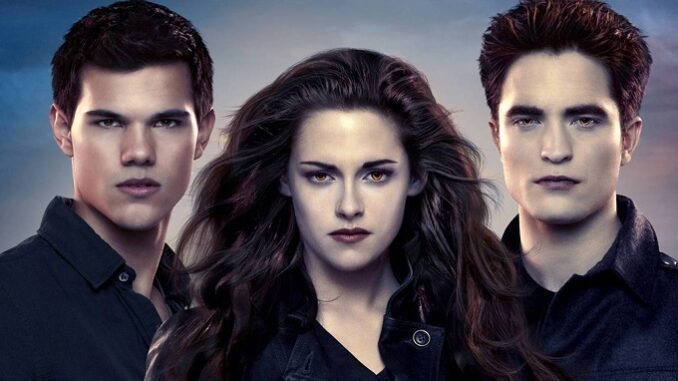
The Chasm and the Compass: Bella’s Reckoning in New Moon
The Twilight saga, for all its supernatural romance and glittering vampires, finds its raw, emotional core not in the thrilling battles or the fantastical transformations, but in the desolate quietude of New Moon. It is within this agonizing second act that Bella Swan, the seemingly ordinary girl caught between two extraordinary worlds, is forced to confront the triumvirate of profound love, shattering loss, and an impossible choice that will define her very being. New Moon strips away the initial honeymoon glow, plunging Bella into a crucible of despair and self-discovery, where her heart becomes the battlefield for her future.
The journey begins with an apex of love, only for it to be brutally snatched away. Bella’s love for Edward Cullen in Twilight is all-consuming, a singular obsession that dictates her every breath. She views him not merely as a boyfriend, but as the oxygen in her lungs, the very sun in her sky. This intense, almost co-dependent love reaches its zenith at her ill-fated birthday party, a moment meant for celebration but culminating in a splash of blood and the realization of Edward’s inherent danger to her mortal life. His subsequent departure is not just a breakup; it is an amputation. Edward’s final, chilling words – “You’re not good for me, Bella,” “I don’t love you anymore” – are delivered with an icy finality that leaves her not merely heartbroken, but literally broken. The ensuing months are a vivid illustration of loss as a physical wound. Bella becomes a hollow shell, an automaton moving through life without purpose or joy. Stephenie Meyer brilliantly portrays this through the “crater in her chest,” a visceral chasm where her soul used to reside. The empty chair beside her, the blurred passage of months, the waking nightmares – all testify to a loss so profound it annihilates identity, proving that for Bella, Edward wasn’t just a part of her world; he was her world.
Yet, from the ashes of this devastating loss, a different kind of love begins to tentatively bloom, offering not an escape, but a grounding. Jacob Black, Bella’s childhood friend and burgeoning werewolf, steps into the vacuum left by Edward. His presence is not ethereal or dangerous, but warm, tangible, and insistent. He makes her laugh again, drags her out of her catatonic stupor, and literally rebuilds her life, piece by piece, from the motorcycles in the garage to the conversations by the fire. Jacob’s love is a sunrise to Edward’s moonlit mystery; it’s an earthbound, fiercely loyal affection that offers comfort, stability, and a promise of a human future. He becomes her anchor, a beacon in the storm of her grief, pulling her back from the brink of absolute despair. This emergent love, while initially a balm for her wounds, steadily grows into a potent force, challenging the singular devotion she once held for Edward. It is a love that doesn’t demand transformation or immortality, but simply her presence, her happiness, and her life as a human.
Ultimately, New Moon confronts Bella with the agonizing choice between these two profoundly different loves, a decision that intertwines with her very identity and future. With Edward’s dramatic return from Volterra, the theoretical choice becomes a terrifying reality. Bella is torn, not just between two boys, but between two destinies: the immortal, dangerous, all-consuming passion of Edward, and the warm, safe, human embrace of Jacob. She grapples with the injustice of having to choose, lamenting, “How can I choose when I don’t want to give up either one?” Her internal conflict is palpable – her soul recognizes Edward as its mate, the one for whom she’d sacrifice everything, including her mortality. Yet, her heart aches for Jacob, for the laughter and warmth he brought, for the undeniable truth that he saved her when Edward couldn’t. The kiss with Jacob, forced and desperate, yet sparking a genuine warmth within her, only complicates the matter. Bella realizes she truly loves Jacob, just not in the same, soul-shattering way she loves Edward. This choice is not an easy “yes” to one and “no” to the other; it is a wrenching tearing of her own heart, knowing that by choosing Edward, she is inflicting the very pain of abandonment she herself endured upon Jacob.
In New Moon, Bella Swan is not merely a protagonist in a love triangle; she is a canvas upon which the brutal realities of love, loss, and self-definition are painted in stark, unforgettable strokes. Edward’s departure shatters her, forcing her to confront the unbearable emptiness of loss. Jacob’s unwavering presence offers a profound, alternative form of love, healing her but also complicating her heart. And the ultimate choice between them solidifies her path, albeit with the bitter taste of knowing her happiness comes at the cost of another’s pain. This chapter of the saga, devoid of the flashy action that often defines fantasy, instead delves into the silent, internal battle for Bella’s soul, proving that sometimes, the most seismic confrontations occur within the confines of a broken heart.
